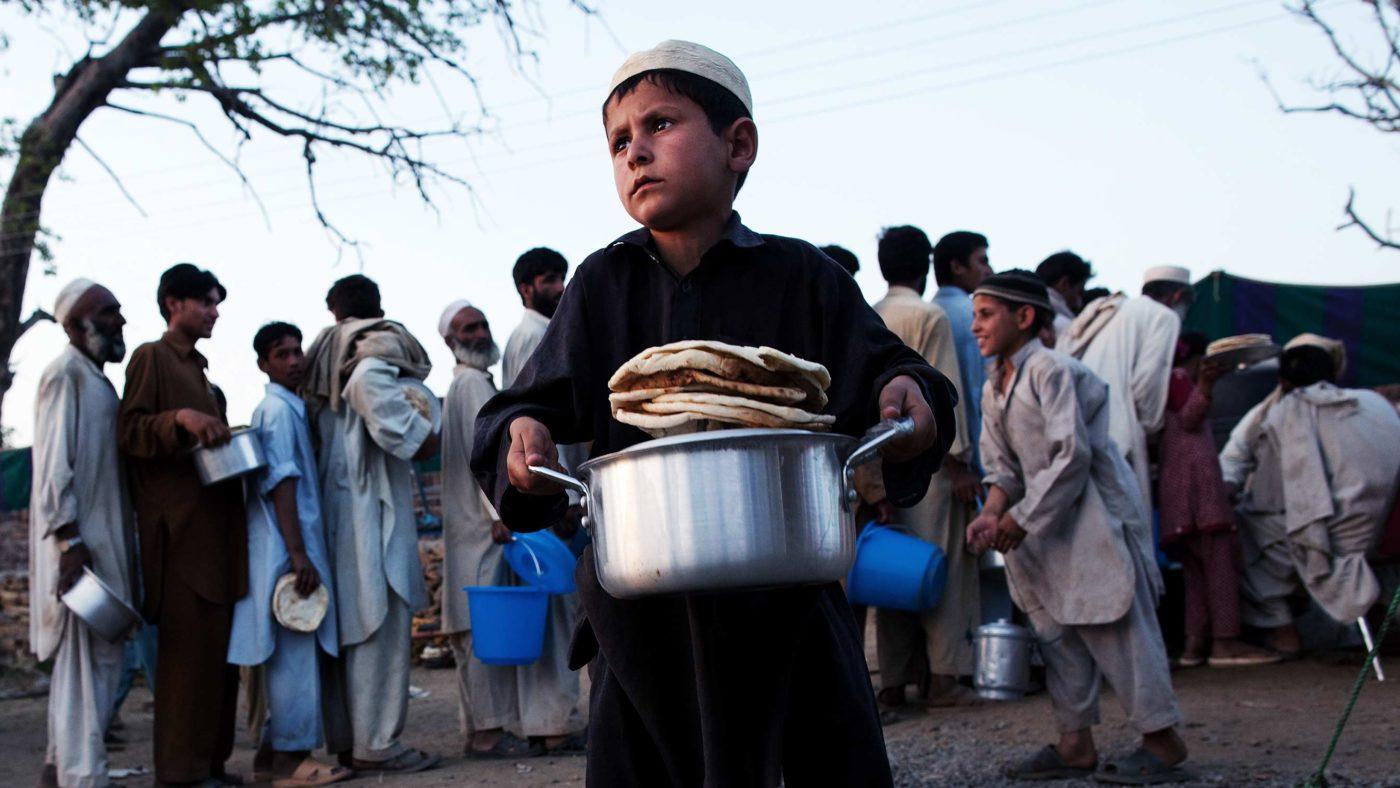In its latest attack on the UK’s international aid spending, the Daily Mail has picked up on a project to deliver cash directly to aid recipients in Pakistan.
The paper suggests readers should be horrified to see the impoverished queuing up to receive money from an ATM or collecting vouchers. Yet what it is actually documenting is one of the most innovative, efficient and pro-market ways of delivering aid. The real scandal is that there are not more of them.
The idea of handing out aid money in the form of cash transfers, often with no strings attached, can be a hard one to get used to.
It can feel reckless, maybe even irresponsible, and is probably why many governments and charities have been reluctant to embrace it more fully – fearing that the public are more comfortable with aid in the form of bags of grain and other in-kind assistance.
But the evidence shows that the benefits of cash transfers are multiple. Last year the Overseas Development Institute reviewed 165 studies into 56 cash transfer programs in 30 different countries to find out their true effectiveness.
The findings showed that cash transfers had improved school attendance and reduced child labour, boosted access to healthcare, improved and diversified diets, stimulated local economies and resulted in a reduction in domestic violence. It also found no evidence that they caused workshy tendencies: in fact, the studies showed cash transfers actually increased employment among adults.
This is probably why the Department for International Development, one of the best of its kind in the world, uses them, and why Theresa May publicly defended them yesterday. They work.
Clearly no system of aid delivery is perfect. What government program is? But cash transfers also minimise some of the problems associated with traditional aid.
As the Mail itself reports, DfID is now using biometric payments, which makes its transfers one of the most secure in the world. The booming use of mobile banking in Africa similarly allows cash to be transferred electronically to a phone.
Like a good cold and flu remedy, cash transfers are both fast-acting and long-lasting. Funds can be transferred quickly without the need for agencies to buy in-kind supplies, often in another country, which then need to be shipped to the affected area. It’s much better to provide people with funds to access basic essentials they need if they are already available locally. And cash transfers help to revive local markets and build economies, which will be the bedrock of sustained prosperity in the long term.
A study comparing food aid with cash transfers in Ecuador, Niger, Uganda, and Yemen found that 18 per cent more people could be helped, at no extra cost, if everyone was given cash transfers instead of food.
Not only is it cheaper and faster, it’s also smarter and more empowering for those involved. The ODI says people actually spend money sensibly when given the chance. It makes sense: they know best what their needs are. Given the resources, they can prioritise how to meet them.
Often, if people are given unsuitable in-kind goods, they sell them anyway – in order to buy what they really need. That’s what happened with Syrian refugees in Iraq.
Similarly, after the earthquake in Nepal, we at Christian Aid – a charity which has embraced the use of cash transfers – sent a “truth truck” to visit affected communities and get feedback from survivors about what kind of aid was most useful. Second on the list was cash.
Such an approach should hardly be a surprise. For years Western governments have provided a social safety net to the most vulnerable people in their own societies in the form of cash transfers. Let’s not patronise aid recipients by assuming they don’t know how best to meet their own needs.
This kind of aid is, ultimately, a great example of how the fluidity of cash can unlock the power of the market. There was a reason humans stopped exchanging goods with each other in the first place: it was costly and inefficient. Currency changed all that, and we’re all the better off for it. And thanks to new technology, money is now more fluid than ever: it can be sent and received more quickly, safely and transparently.
So why are there not more cash transfer programs in operation? Probably in part because agencies fear the kind of scare stories in the Daily Mail. But if the aid sector can trust people in the developing world to spend cash transfers wisely, then maybe it can trust people in developed countries to understand the value of good aid.
And if its critics really want to improve the British aid system, they should be calling for more of this kind of pro-market, pro-freedom aid, not less.


